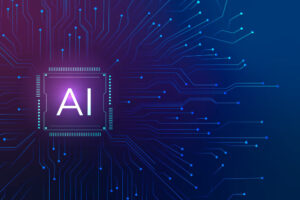
Artificial Intelligence (AI) is making groundbreaking strides across various industries, but its impact on healthcare stands out as one of the most transformative. From diagnosing diseases more accurately to creating personalized treatment plans, AI has the potential to revolutionize how we approach medical care. In this blog, we’ll explore how AI is shaping the future of healthcare, its current applications, and what the future holds for this rapidly evolving technology.
1. AI in Diagnostics: Improving Accuracy and Speed
One of the most significant applications of AI in healthcare is in medical diagnostics. Traditional diagnostic methods rely heavily on human expertise, and errors can occur due to fatigue or lack of data. However, AI-powered systems can analyze large datasets, including medical images, lab results, and patient histories, to identify patterns that may be missed by human eyes.
AI in Medical Imaging
AI algorithms are being used in radiology to interpret medical images such as X-rays, MRIs, and CT scans with remarkable accuracy. AI systems can detect anomalies like tumors, fractures, and lesions far earlier than traditional methods, enabling early intervention and better patient outcomes. For instance, Google’s AI has been shown to outperform radiologists in detecting breast cancer from mammograms.
AI for Early Detection of Diseases
In fields like oncology, AI has proven useful in identifying early signs of cancer, which is often crucial for successful treatment. AI tools analyze genetic data, clinical trials, and patient data to predict the likelihood of a disease developing, allowing for preventive measures before symptoms even appear. This can significantly reduce healthcare costs and improve long-term outcomes for patients.
2. Personalized Medicine: Tailoring Treatments to Individuals
AI is also pushing the boundaries of personalized medicine by providing individualized treatment plans based on a patient’s unique genetic makeup, lifestyle, and medical history. Rather than using a one-size-fits-all approach, AI analyzes large sets of data to determine the most effective treatments for specific patients, optimizing care delivery.
Precision Medicine and AI
In precision medicine, AI tools analyze genetic profiles to predict how a patient will respond to certain treatments, allowing doctors to tailor medications and therapies. This is especially useful in areas like oncology, where patients with the same type of cancer may respond differently to the same treatment. AI helps doctors make better-informed decisions, improving success rates and reducing adverse effects.
AI in Drug Development
AI is accelerating the process of drug discovery by predicting which compounds could effectively treat specific diseases. Traditional drug development can take over a decade and billions of dollars, but AI models can analyze vast amounts of data to identify promising drug candidates more quickly and accurately. This can drastically cut down the time and cost associated with bringing new treatments to market, potentially saving lives in the process.
3. Virtual Health Assistants and Telemedicine
AI is playing a crucial role in the rise of telemedicine and virtual health assistants. These AI-powered tools enable remote consultations, providing patients with 24/7 access to healthcare professionals and reducing the need for in-person visits.
AI Chatbots and Virtual Assistants
AI chatbots, like those developed by Babylon Health and Ada Health, can engage with patients in real-time, asking questions, analyzing symptoms, and providing recommendations for further treatment. These tools not only help patients manage minor health concerns but also assist healthcare providers in managing patient queries efficiently. Virtual assistants also remind patients to take their medications, schedule appointments, and follow post-treatment care routines.
Remote Monitoring with AI
AI-based remote monitoring systems are increasingly used to track patients’ vital signs and health data. For chronic conditions like diabetes or heart disease, AI tools can analyze this data in real-time and alert healthcare providers if a patient’s condition worsens. This proactive approach can prevent complications and reduce hospital readmissions, improving the overall quality of care.
4. AI and Robotics in Surgery
AI is revolutionizing surgical procedures by enhancing the precision and efficiency of operations. Robots, guided by AI, can perform minimally invasive surgeries with a level of accuracy that would be impossible for humans to achieve.
Robotic-Assisted Surgery
AI-powered robotic systems, such as the da Vinci Surgical System, are helping surgeons perform delicate procedures with enhanced precision. These systems offer greater flexibility and control during operations, minimizing risks and improving patient outcomes. Surgeons can use AI to simulate complex procedures in advance, identifying potential complications before surgery even begins.
AI in Post-Surgical Care
AI tools are also being used to predict complications after surgery. By analyzing patient data and surgical outcomes, AI can identify patterns that suggest a higher likelihood of post-operative complications like infections or organ failure. This allows for early interventions and better post-surgical monitoring, leading to faster recovery times.
5. AI and Big Data: Enhancing Research and Development
AI’s ability to process massive amounts of data is also accelerating medical research and development. By analyzing medical records, clinical trials, and other health data, AI can help researchers discover new treatment methods, identify disease trends, and improve healthcare protocols.
AI in Genomics
AI is being used in genomics to study the human genome and its relationship to various diseases. Machine learning models can analyze genetic data to identify genes associated with diseases like cancer, Alzheimer’s, and heart disease. This research could pave the way for groundbreaking treatments and preventive strategies in the future.
Predictive Analytics in Healthcare
AI-powered predictive analytics help healthcare systems plan better by forecasting patient inflows, potential disease outbreaks, and resource needs. For example, during the COVID-19 pandemic, AI models helped predict virus spread patterns, enabling healthcare facilities to allocate resources more effectively and provide timely responses to patient surges.
6. The Ethical and Regulatory Challenges of AI in Healthcare
While AI offers immense potential in healthcare, it also raises significant ethical and regulatory concerns. Issues like patient data privacy, algorithmic bias, and the transparency of AI decisions must be addressed to ensure that AI is implemented safely and fairly.
Data Privacy
Healthcare involves highly sensitive data, and using AI means handling vast amounts of personal health information. Ensuring patient privacy while leveraging AI for analysis is a major challenge. The healthcare industry must adopt strict data protection regulations, such as GDPR and HIPAA compliance, to prevent breaches and misuse of patient data.
Algorithmic Bias
AI models can sometimes perpetuate biases present in the data they are trained on, leading to unequal treatment for different demographic groups. For instance, AI systems trained on datasets lacking diversity could make incorrect diagnoses for patients from underrepresented populations. Ensuring that AI systems are designed and trained in an unbiased manner is crucial to equitable healthcare delivery.
Conclusion: The Future of AI in Healthcare
The integration of AI into healthcare is set to transform how we diagnose, treat, and manage diseases. From early detection and personalized treatment to robotic surgery and telemedicine, AI’s potential in healthcare is vast and still growing. However, the key to harnessing its full power lies in addressing ethical concerns and ensuring equitable access to these life-saving technologies. With continued advancements, AI has the potential to make healthcare more efficient, accessible, and effective for everyone.




